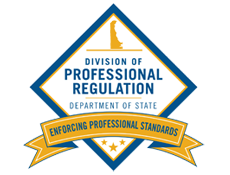DOVER, DE – Delaware has the most complete and effective system of laws and regulations in the country to govern medical practice and protect patients from abuse and unprofessional conduct, according to a 50-state investigative reporting project recently completed by the Atlanta Journal-Constitution.
 Where gaps often exist in other states that allow medical practitioners to avoid consequences in cases where patients are mistreated, Delaware’s reporting and accountability structure is comprehensive, the newspaper found.
Where gaps often exist in other states that allow medical practitioners to avoid consequences in cases where patients are mistreated, Delaware’s reporting and accountability structure is comprehensive, the newspaper found.
“Delaware has some of the nation’s strongest patient-protection laws,” Journal-Constitution reporters wrote in an article summarizing the findings of a year-long investigation into medical practitioner misconduct and how states address it.
“There exists trust between doctor and patient unlike other relationships we have, but we know that we cannot rely on trust alone to preserve that relationship,” said Gov. Jack Markell. “The most important duty of state government is to keep its citizens from harm. In Delaware, we are committed to protecting our neighbors when they are at their most vulnerable.”
Delaware sits at the top of the scale in four out of five categories crafted by journalists to evaluate transparency, duty-to-report laws, regulatory boards, criminal statutes and disciplinary rules. Delaware scored 100 percent on the newspaper’s scale for effective and comprehensive duty-to-report laws. The Journal-Constitution noted that Delaware requires all health care facilities and medical professionals to report incidents or reasonable suspicions of unprofessional conduct to state regulators within 30 days.
“We have come a long way in how we deal with allegations of abuse by medical professionals. The reforms enacted after the Bradley case and the improved coordination with law enforcement, especially the Attorney General’s Office, have created a system that can respond swiftly and deter abusive behavior,” said Secretary of State Jeffrey Bullock, whose department houses the state’s professional regulatory agency. “We also know that some health care professionals are wrongly accused. We need to be equally vigilant to make sure that we protect the reputations of the vast majority of health care professionals who provide the best care possible to their patients.”
Many of the key reforms that earned Delaware high marks were adopted in the aftermath of the horrific child sex abuse case of former pediatrician Earl Bradley.
“The tragedy of the Bradley case remains incalculable, but the improvements to our laws and regulatory structure since will substantially protect future patients from suffering abuse at the hands of a medical professional,” said David Mangler, director of the Division of Professional Regulation, which oversees the licensing of physicians, nurses and other health practitioners.
The product of extensive review of the Bradley case by then-Attorney General Beau Biden and the Markell administration, the 2010 package of legislation strengthened many aspects of Delaware’s medical practice laws. Most notably, these reforms:
• Reorganized the state Board of Medical Licensure and Discipline to increase the number of public members, and gave the board the ability to expedite suspensions of medical licenses where there is a threat to the public;
• Allowed the state to discipline health care institutions if they fail to make mandatory reports of child abuse, and increased civil penalties for persons or entities who fail to report child abuse;
• Authorized fines for health care institutions that have a duty to report physician misconduct but fail to do so, and increased fines for unprofessional conduct by a physician;
• Required all physicians – both currently practicing and new physicians – to undergo state and federal background checks; and
• Improved communications between regulatory bodies and the criminal justice community by requiring the Division of Professional Regulation to report criminal activity to law enforcement.
 Where gaps often exist in other states that allow medical practitioners to avoid consequences in cases where patients are mistreated, Delaware’s reporting and accountability structure is comprehensive, the newspaper found.
Where gaps often exist in other states that allow medical practitioners to avoid consequences in cases where patients are mistreated, Delaware’s reporting and accountability structure is comprehensive, the newspaper found.